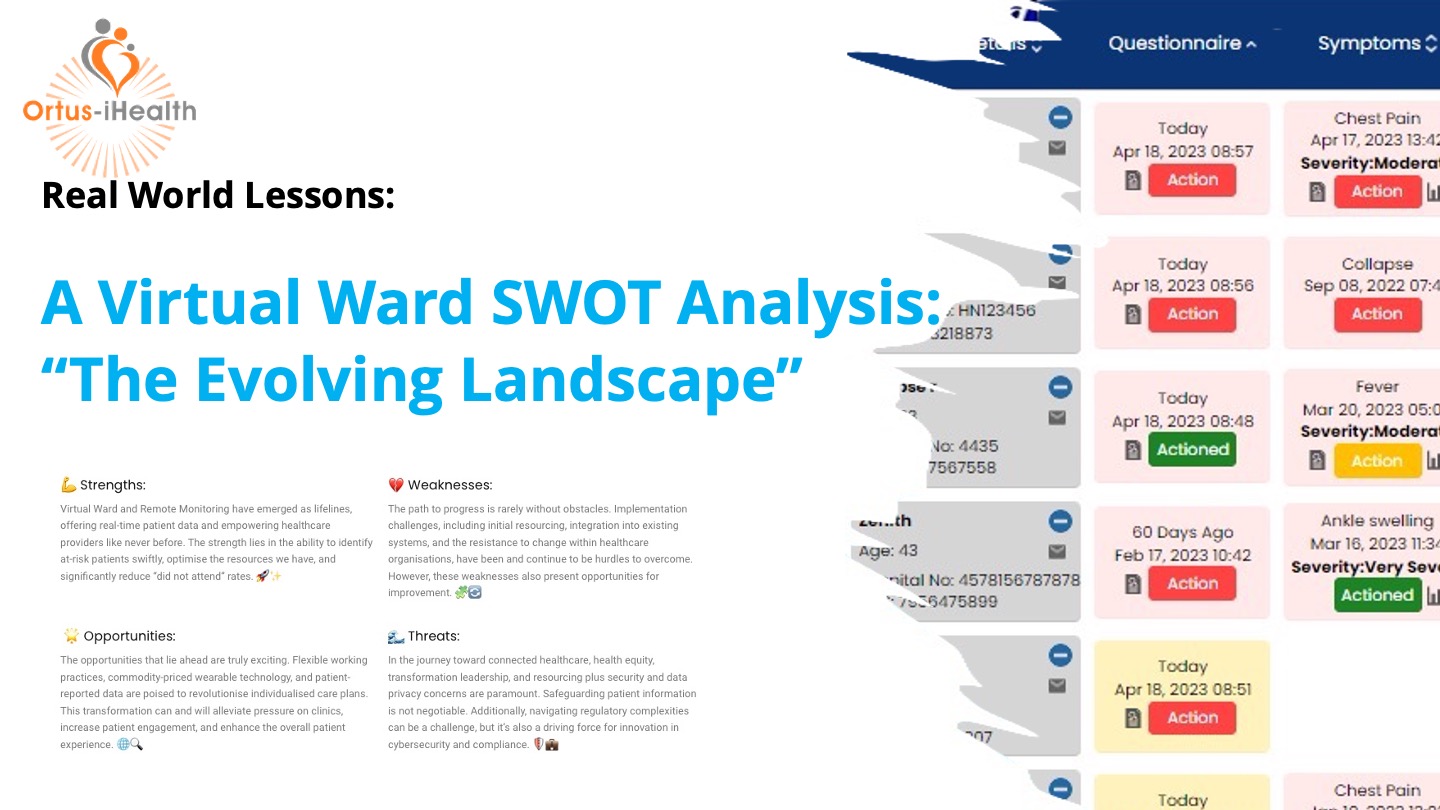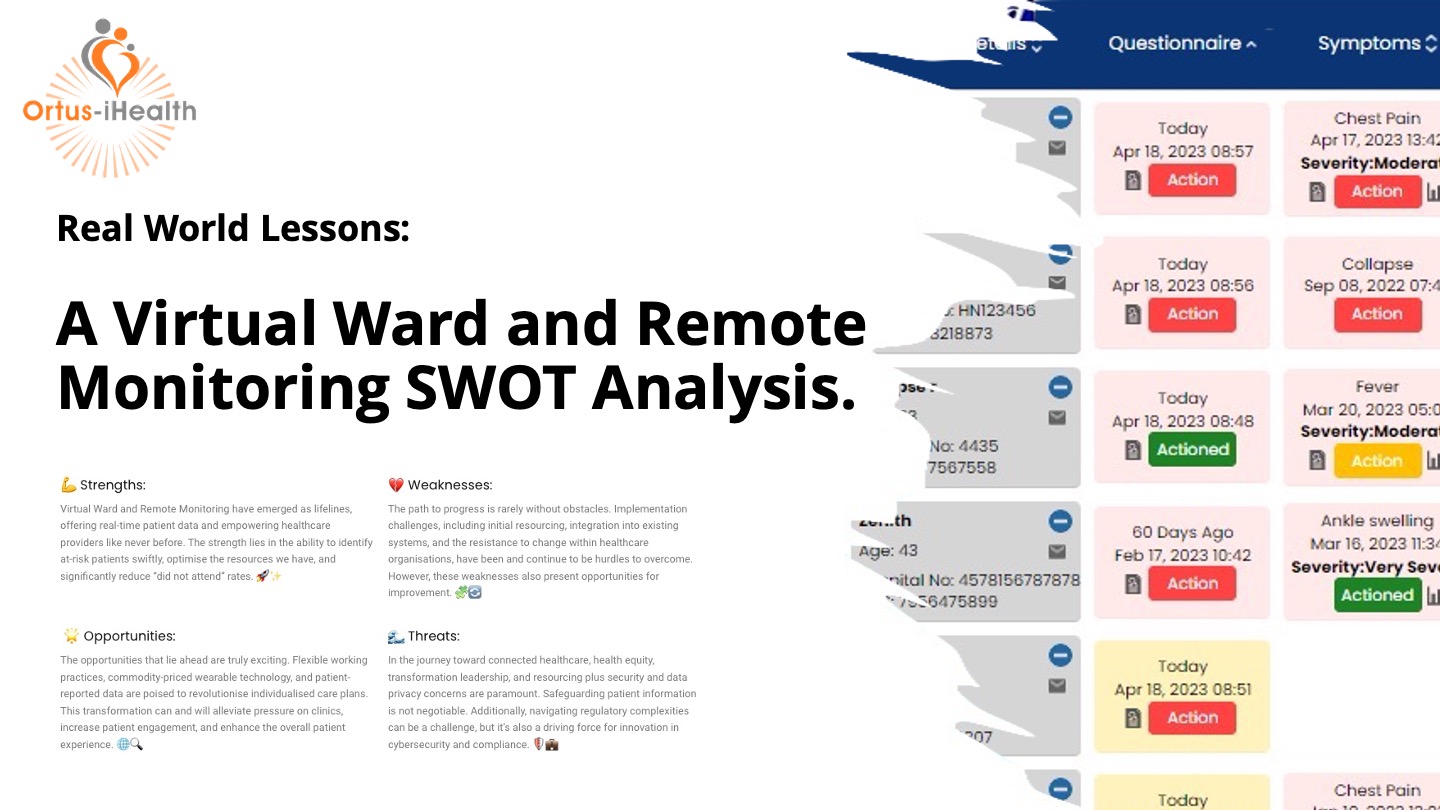Transforming Cardiovascular Disease Prevention Innovation: ELOPE in East London
East London Cardiovascular
Disease Prevention Group
Introduction:
At September’s CVD Prevention Conference run by Convenzis, Marie Manceau, a CVD Clinical Research Nurse at the East London Cardiovascular Disease Prevention Group, shared insights into their innovative project that focuses on preventing cardiovascular diseases among NHS staff. The project leverages the Ortus-iHealth platform, and in this blog post, we’ll dive into the details of how this initiative is making a significant impact on cardiovascular health.
The East London Cardiovascular Disease Prevention Group: Marie explained that their group was formed to address the high prevalence of cardiovascular diseases in East London. The group has three core aims:
- Develop and deliver cardiovascular disease prevention services within NHS trusts, hospitals, and community groups.
- Collaborate with primary care to promote cardiovascular prevention.
- Leverage expertise to drive cardiovascular disease prevention efforts in communities.
The presentation outlined the role of the Ortus-iHealth platform in supporting the delivery of cardiovascular health checks to NHS staff at Barts Hospital Trust. Marie outlined the key components of their project:
- Convenient Appointments:
NHS staff can easily schedule 15-minute health check appointments through a QR code and link provided by the Ortus-iHealth platform. - Comprehensive Assessment:
During the appointments, healthcare professionals collect essential data, including blood pressure, BMI, heart rhythm, and more. - Personalized Advice:
Based on the assessment, participants receive personalized advice on diet, exercise, smoking cessation, and alcohol consumption. - Home Blood Pressure Monitoring:
Those with high blood pressure are provided with free blood pressure monitors to track their readings at home. - Referral and Follow-up:
If necessary, participants are referred to their GP for further management or medication adjustments.
- Convenient Appointments:
Results and Impact:
Marie highlighted the positive outcomes and impact of their project:
- Approximately 16% of staff had elevated blood pressure, with 8% already under treatment.
- Out of those with high blood pressure, 60% continued to monitor their blood pressure at home.
- 52% of those monitoring at home were referred to their GP for further management.
Feedback and Awards:
The project received positive feedback, with 79% of staff feeling more valued, 76% willing to make positive changes to their physical activity, and 88% motivated to improve their diet. Marie also shared that they were nominated for two awards, showcasing the recognition of their impactful work.
Conclusion:
Marie’s presentation highlighted the critical role of the Ortus-iHealth platform in their project for NHS staff as well as some of the in securing funding which in this case comes primarily from various sources, including the Barts Charity and private healthcare providers like Nuffield.
However, the initiative not only identifies and manages high blood pressure but also encourages positive lifestyle changes, key to delivering longevity and improved quality of life. The project’s success, coupled with award nominations, demonstrates its importance in promoting staff well-being and reducing cardiovascular risks.
Special Thanks to:
Marie Manceau and the team at The East London Cardiovascular Disease Prevention Group for their outstanding work and support in presenting their experiences at the event.
For more details contact: Nick.Niziolomski@ortus-ihealth.com
Related Posts
Outpatient Transformation in Cardiology
Dr. Das presented at the the recent Outpatient Transformation Event. He tells the story of how technology embracing remote monitoring and virtual clinics can revolutionise Cardiology services...
Navigating Healthcare’s Future: A SWOT Analysis Part 3: The Evolving Landscape
The Evolving Landscape In our exploration of Virtual Wards within the NHS, we’ve delved into a realm where significant strengths intersect with notable challenges. The strengths of Virtual Wards lie in their evidence-based approach, patient-centric care, the efficiency of multidisciplinary teams, and the innovative use of technology, all contributing to t
Navigating Healthcare’s Future: A SWOT Analysis Part 2: Strengths and Threats!
A Virtual Ward and Remote Monitoring SWOT Analysis: Strengths and Threats (Part 2 of 3) In the first instalment of this three-part series, we touched on the transformative expectations and circumstances surrounding NHS England’s plans for the deployment of Virtual Wards. Programmes of this scale across an organisation as complex and diverse as the NHS [&h
Navigating Healthcare’s Future: A SWOT Analysis of Virtual Ward & Remote Monitoring in the UK NHS
A Virtual Ward and Remote Monitoring SWOT Analysis (Part 1 of 3) As professionals in the healthcare industry, we are witnessing a monumental shift in patient care. The adoption of Virtual Ward and Remote Monitoring technology within the UK NHS has been a game-changer. 🇬🇧💡 In my role at Ortus-iHealth, I’ve had the privilege of […]






